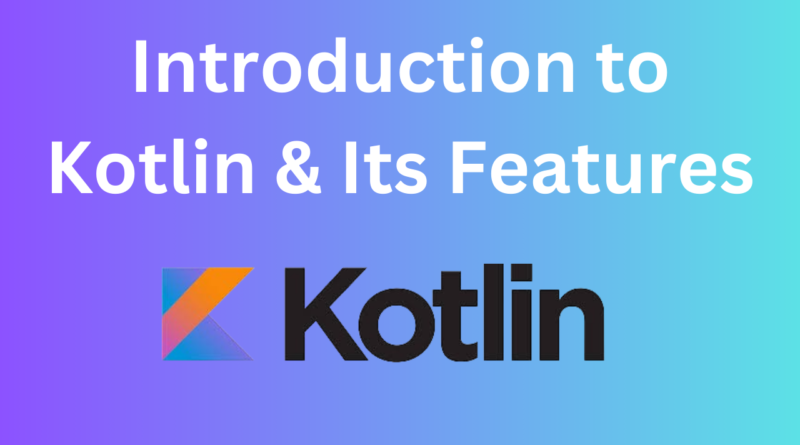Introduction to Kotlin and its features
Kotlin is a modern programming language developed by JetBrains that has gained immense popularity due to its simplicity, expressiveness, and compatibility with existing Java projects. Officially supported by Google for Android development since 2017, Kotlin runs on the Java Virtual Machine (JVM) and supports a wide range of applications, from mobile and web to server-side and desktop programming.
Key Features of Kotlin
1. Concise Syntax
Kotlin simplifies code by reducing boilerplate, making it more readable and maintainable. Features like type inference, smart casts, and lambda expressions help in writing compact and efficient code
2. Null Safety
One of Kotlin’s standout features is null safety, which helps prevent NullPointerException by distinguishing between nullable and non-nullable types. With operators like ?. (safe call), ?: (Elvis operator), and !! (non-null assertion), developers can handle nulls safely and explicitly.
3.Interoperability
Kotlin is fully interoperable with Java, allowing seamless integration into existing Java projects. You can call Java code from Kotlin and vice versa, which makes transitioning to Kotlin in legacy projects easy.
4. Functional Programming
Kotlin embraces functional programming paradigms with higher-order functions, lambdas, and built-in methods like map, filter, and reduce. These features enable concise and expressive handling of collections and other operations.
5. Coroutines
Coroutines make asynchronous programming intuitive and efficient by allowing developers to write non-blocking code in a sequential style. They are ideal for tasks like handling network requests and database operations.
6. Extension Functions
Kotlin enables developers to add functionality to existing classes without altering their code. These extension functions enhance code reusability and readability.
7. Object-Oriented Features
As an object-oriented programming language, Kotlin supports classes, inheritance, polymorphism, and encapsulation. Unique constructs like data classes, sealed classes, and interfaces with default implementations add to its capabilities.
8. Tooling and IDE Support
Kotlin is supported by popular IDEs like IntelliJ IDEA and Android Studio, providing features like code completion, refactoring tools, and error checking. Its compatibility with Java bytecode ensures developers can use existing tools and libraries.
9. Android Development
Kotlin has become the preferred language for Android development, offering advantages like reduced boilerplate, better safety features, and seamless Java interoperability. Libraries like Jetpack Compose further showcase Kotlin’s power in modern Android app development.
Code Examples
fun printLength(input: String?) {
println(input?.length ?: “Input is null”)
}


Hello, you used to write great, but the last few posts have been kinda boring?I miss your great writings. Past few posts are just a little bit out of track! come on!